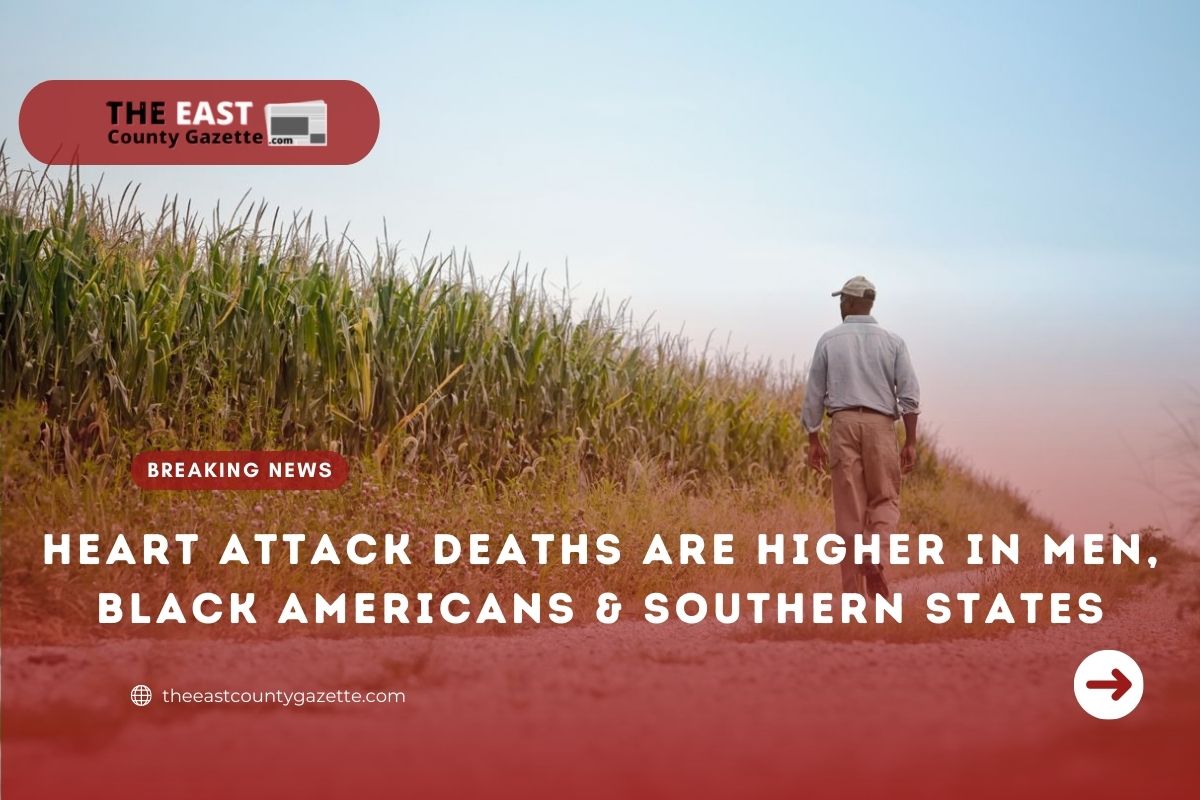In a study published on December 22 in the Journal of the American Heart Association, researchers found that men, black adults, and rural residents are at greater risk of premature heart attack deaths than women, white adults, and urban county residents.
According to the Centers for Disease Control and Prevention (CDC), heart disease is the leading cause of death in the United States, accounting for 1 in 4 deaths.
Death due to acute myocardial infarction, more commonly known as a heart attack, is a major contributor to that, said lead author Safi U. Khan, MD, a cardiology fellow at the DeBakey Heart and Vascular Institute at Houston Methodist Hospital in Houston, in an American Heart Association (AHA) release.
According to a press release by the lead author Safi U. Khan, deaths due to acute myocardial infarction, more commonly known as heart attacks, account for more than half of those deaths.
The number of premature heart attacks has declined in the past 20 years, but many subgroups have not made progress.
Dr. Khan believes that this study may help to shape and target preventive heart disease interventions by identifying the people most likely to suffer from an early heart attack.
In the study, researchers utilized the CDC’s Wide-ranging Online Data for Epidemiologic Research (WONDER) database.
The primary cause of death for 615,848 people between 1999 and 2019 was a premature heart attack.
For the purpose of comparing the risk of dying from a heart attack early, the deceased’s were grouped into five categories: young (18 to 44 years old), middle-aged (45 to 64 years old), males and females, ethnicities, and races, states and counties, and urban and rural.
In a study of premature deaths due to heart attacks, researchers found significant differences based on sex, race, and ethnicity, and where a person lived.
- Death rates were nearly 3 times higher for men compared with women, 20 versus 7.3 per 100,000 person-years.
- Death rates were higher among Black adults than white adults, 17.5 versus 13.7 per 100,000 person-years.
- There were higher death rates in Southern states, including Arkansas, Mississippi, Kentucky, Louisiana, and Tennessee, compared with Western and Northeastern states.
- Middle-aged adults died more often from heart attacks than younger adults, at 34.9 per 100,000 person-years compared to 2.5 per 100,000 person-years.
- In rural counties, heart attack-related premature deaths have not declined as much as in urban counties. Rural counties saw a decline of only 2.4 per year on average, while large metro areas experienced a percentage decline of 4.2 per year.
Also read: Powell states The Fed is considering whether to launch a digital currency
StatPearls defines person-years as how many new cases or events are reported in a given period of time.
“Twenty deaths due to premature heart attack per 100,000 person-years” translates to 20 premature heart attacks per 100,000 people under the age of 65.
“These trends highlight distinct healthcare disparities among people from diverse racial and ethnic backgrounds,” said Khan.
“For example, low socioeconomic status, higher prevalence of having no health insurance, and higher prevalence of cardiovascular risk factors, such as smoking, hyperlipidemia, type 2 diabetes, and high blood pressure, among racial [or] ethnic minorities — all of these factors widened the health gap for people from diverse racial and ethnic groups,” he explained.
“Individuals living within areas deemed to be ‘socially vulnerable,’ characterized by low socioeconomic status, low education, high unemployment, and low access to reliable transportation, experience disproportionately more risk factors for poor health that contribute not only to a higher risk for cardiovascular diseases but for all-cause premature death,” Megan Irby said, a professor at the University of North Carolina Greensboro’s school of health and human sciences.
“Poverty, low education, and rural and urban location help explain the persistence of health disparities, but they are byproducts rather than the primary culprits of the problem,” Dr. Irby added.
According to her, these inequities are rooted in both local, national policies and actions of racism and discrimination that are woven into the fabric of American society.
Research presented at the 2019 American College of Cardiology Annual Scientific Session shows that only about 0.3 percent of adults under 40 suffer a heart attack, but that number has increased by about 2 percent a year for the last ten years.
In Hackensack Meridian Health’s opinion, there are a few factors associated with having a heart attack at a young age.
- Substance abuse or excessive alcohol use
- Smoking
- High blood pressure
- High cholesterol levels
- Lack of physical activity
- Diabetes
- Poor diet

